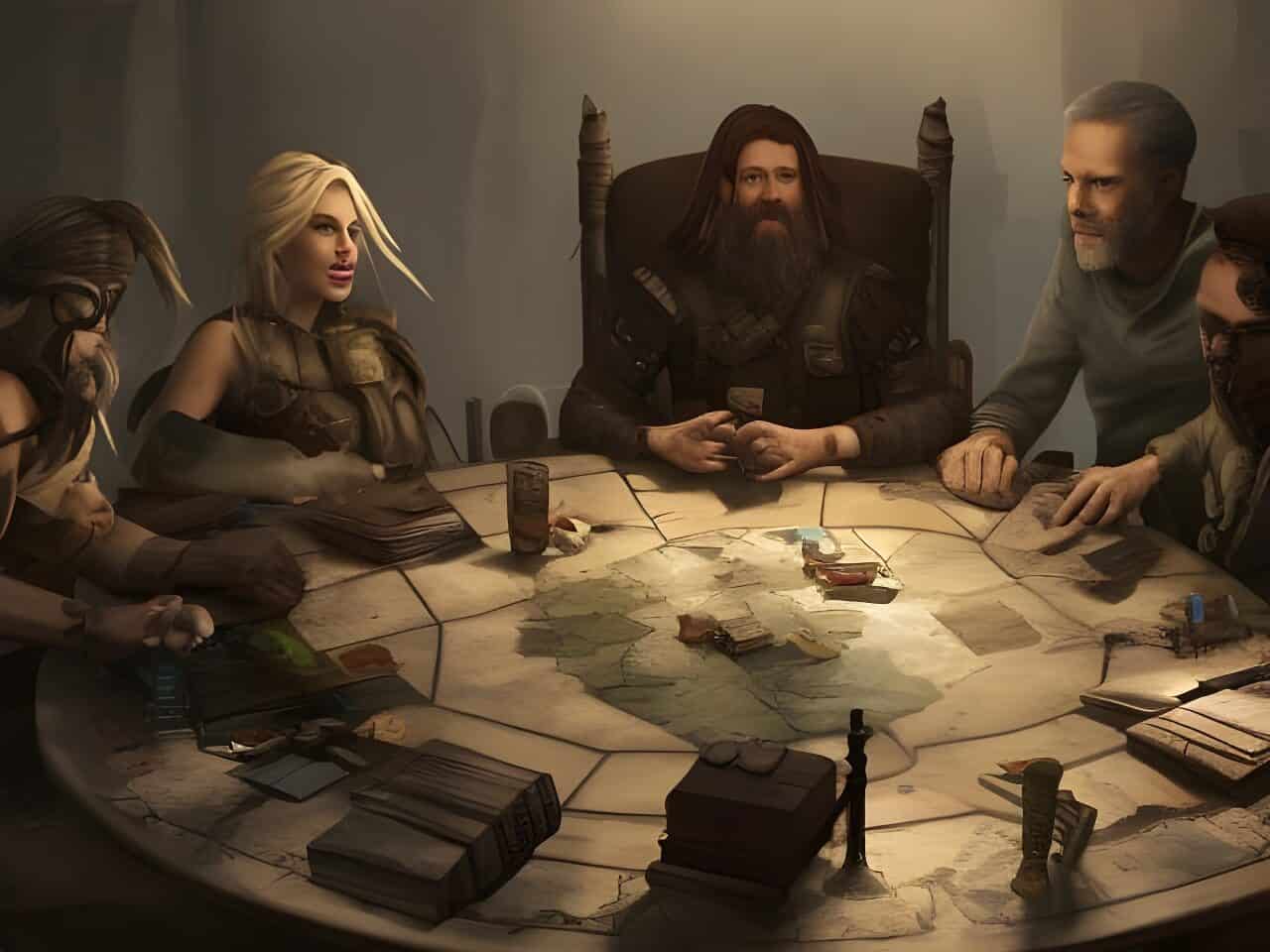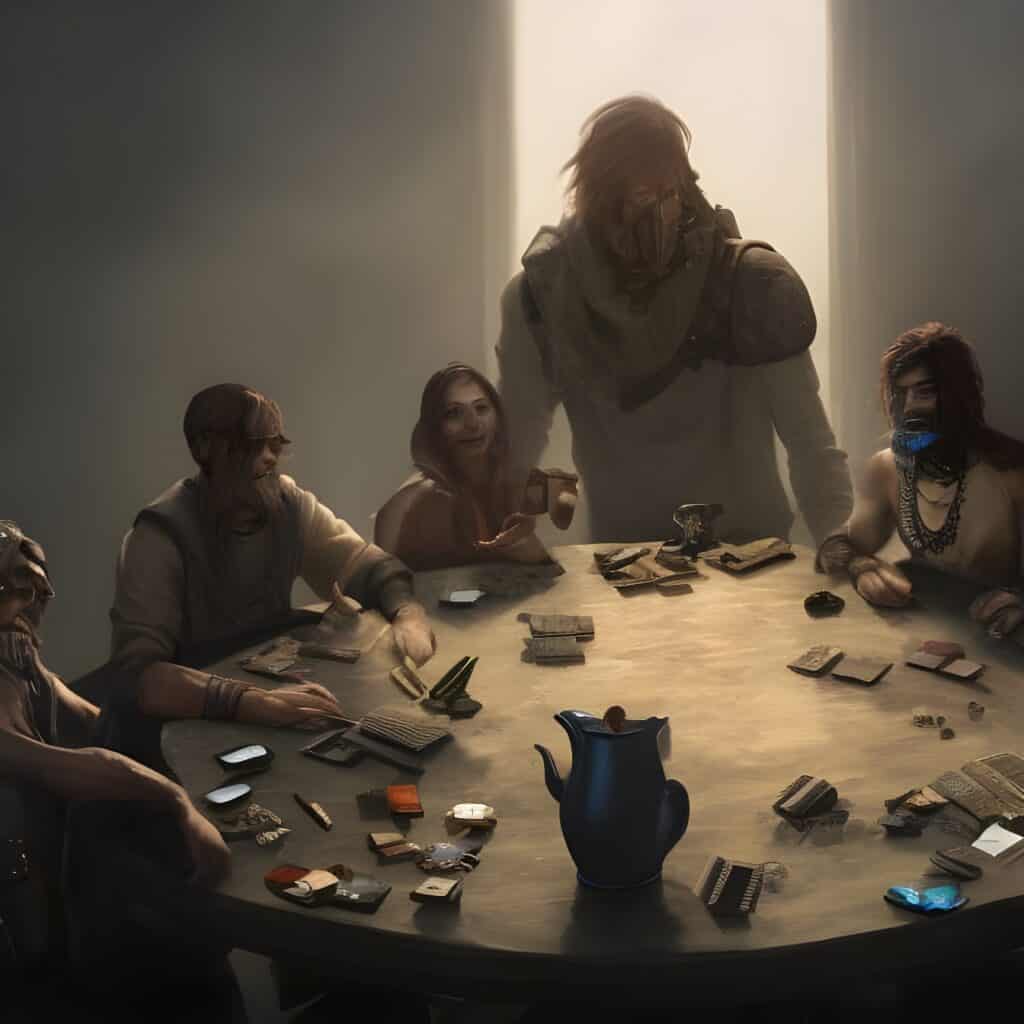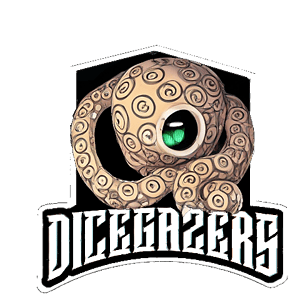Herein I want to cover storytelling in-depth and how you can apply it to tabletop roleplaying games. This is more of a “this is what I’m learning” than an absolute expert opinion. As such I want to reference other sites and articles to get a broader perspective.
Storytelling is using words to create new worlds for the reader or listener. Storytelling for tabletop roleplaying games combines this AND a whole set of rules that the listeners can use to affect the outcome of those words.

I want to focus on talking just about telling a story here first, setting aside roleplaying game systems, and mechanics, until later. Making a good story keeps players coming back by making long-term memories they love.
What is storytelling
We all know what storytelling is when we hear it. When we go to define it however sometimes we get confused. Put simply a story is the recounting of events either fictional or real told to an audience.
Storytelling is used usually for entertainment now, but also for education, instilling values and learning.
What elements are in a story
These are some basic elements that stories include particularly those that don’t have conflict as described over at Tvtropes. Each of these elements is important for roleplaying games as well so let’s describe them briefly. Then we’ll talk about the basics of how to tell a story, and finally, bring in using these in tabletop RPGs.
Structure
Classical story structure has 7 parts: exposition, rising action, climax, falling action, resolution, dénouement, and themes. Exposition is a comprehensive description of an idea. The rising action is a setup for the story. Climax is when the story’s conflict is resolved. The falling action is to bring a conclusion to the climax. Resolution is when you learn what happens to the characters after the conflict is resolved. Denouement is when the complexities are unraveled. Themes are ideas woven throughout the story.
Premise
The premise is the central idea of a story expressed as simply as possible. Studiobinder describes a good premise as one that combines a story’s main character, its goal, and the world in one or two sentences. They also describe a good tv or film premise to be one that is short, combines all the above but also creates interest to hear more/watch more.

Mood/tone
Mood is a specific feeling at any particular time. In a storytelling sense, this is interwoven in many aspects. In a roleplaying game context, this comes from the setting, the races and their cultures, the cities, and much more. For example, in Rifts, we see the world 400 years after calamities nobody thought possible to destroy the world, and humanity is just starting to rise out of it.
Style
Every author has their own particular way of writing and this is style. Literaryterms says here “..its what sets authors apart and creates the voice the audience hears..”.
How to tell stories
An article over at Trekksoft has 10 steps that are great for any story writer. I want to highlight a few of them as they pertain to tabletop roleplaying games.
Know your audience
Who are you speaking to? What ages are they? Where are they from? What experiences have they had? What kind of story are they looking for? Is this the first time you’ve met them? Have you been together for a long time? Are you in a public setting and need to be more professional? Is it a personal setting and can be more liberal towards individual interests?
These are questions that can be considered when crafting a story. Knowing the answers impacts the story you tell. If everyone is limited on time or has a short attention span (young kids for example) that changes the words you use. Start with knowing your audience then you can make them care and hook them in.
Make them care
Why should they sit and listen? Making them care can be an intellectual, emotional, or other stimulus but there’s gotta be some reason or they check out. The question I saw that stuck out most to me from Trekksoft is “How is it relevant to the audience”?
Here you can learn more about what makes game mastering difficult
Set the scene
Describing a setting or the beginning of a story through our senses helps draw people into the story. Where does the adventure begin? What activities are going on? How busy is it? What does it smell like? Are things different than normal? Are there visible threats?
Engage your audience
Asking questions helps to remove those boundaries where people view it as a story and immerse themselves in it. This is precisely what we are trying to do in roleplaying games. You can start a game session, or campaign with a setting description, give sense details, show things of interest (like bounty boards, quests, etc), and engage players by asking “What do you do”?

Details are good in storytelling
In written novels, audiobooks, TV, and movies there are often details that add humor, flavor, and other bits of style or mood. These details however are purely for show, meaning that they in and of themselves are not what’s important. What’s important, is that they are good enough to help progress the story. It’s THE STORY that’s important.
In Lit RPG novels there is a lot of character stats described, ie strength, willpower, resistance, defenses, offense, etc. In addition, they usually go into detail on how one specifically manipulates the magic in order to create an effect.
Now while that is what many listeners to that genre enjoy, it doesn’t translate well over to tabletop roleplaying games.
Details are a bad focus in TTRPGs
More precisely here getting caught up in focusing on details is bad. Does it really matter if someone rolled a 1 for the story? Not really, but often we create complications when that happens.
Bring storytelling back to RPGs
Now that we’ve covered the basic elements most stories have and those important to tabletop roleplaying games let’s bring it all together.
As a GM you have the adventure idea which gives you the premise. The game setting will help generate part of the mood and structure. Your opening scene helps bring the players together engaging them and giving them a reason to care. The questions you ask engage them and help bring them together.
